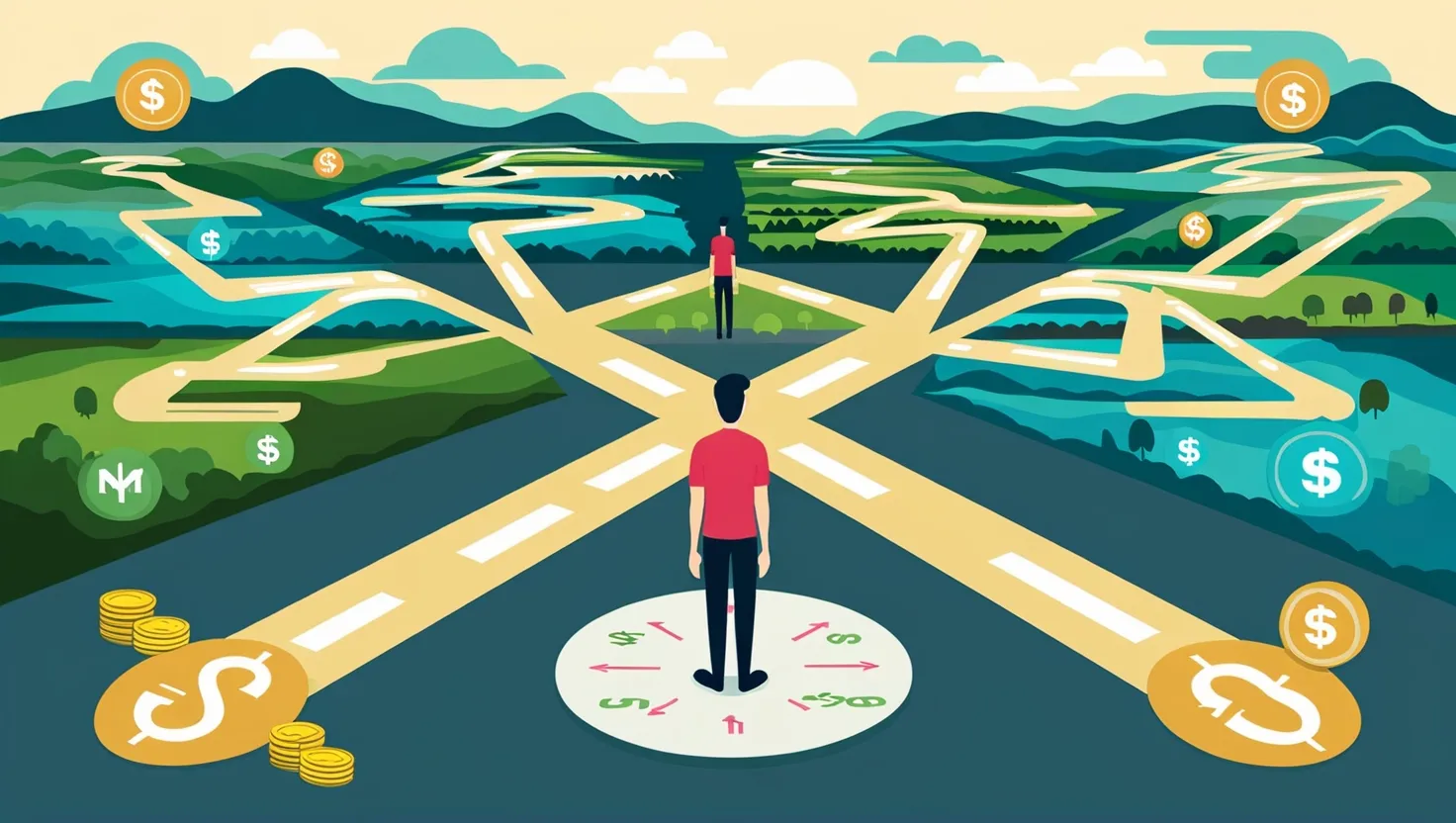Robo-Advisors: Revolutionizing Personal Finance
The world of personal finance has undergone a dramatic transformation in recent years, thanks to the rise of robo-advisors. These digital platforms are shaking up the investment landscape, making it easier and more affordable for people to grow their wealth. Let's dive into how robo-advisors are changing the game and what it means for your financial future.
At its core, a robo-advisor is like having a super-smart financial buddy in your pocket. It's an automated investment platform that uses fancy algorithms and artificial intelligence to manage your money. Think of it as a digital financial wizard that's working 24/7 to keep your investments on track.
So how does it work? Well, when you sign up, the robo-advisor asks you a bunch of questions. It's kind of like speed dating, but for your money. These questions help the system figure out things like how much risk you're comfortable with and what your financial goals are. Maybe you're saving up for a dream vacation, or you're thinking long-term about retirement. Whatever it is, the robo-advisor uses this info to create a personalized investment plan just for you.
One of the biggest perks of robo-advisors is that they're incredibly cost-effective. Traditional financial advisors often charge an arm and a leg for their services - we're talking around 1% of your total investments each year. That might not sound like much, but it can really add up over time. Robo-advisors, on the other hand, offer similar services for a fraction of the cost. Some charge as little as 0.25%, which means more of your money stays in your pocket.
This affordability is a game-changer, especially for younger folks or those who are just starting out on their investment journey. In the past, you might have needed a big chunk of change to even get started with a financial advisor. But with robo-advisors, you can often start investing with as little as $20. It's like the investment world has suddenly opened its doors to everyone, not just the wealthy elite.
Another huge plus is how convenient these platforms are. Let's face it, most of us lead busy lives, and the thought of scheduling appointments with a financial advisor can feel like a hassle. With a robo-advisor, everything happens online. You can check your investments, make changes, or get insights with just a few taps on your phone. It's perfect for those of us who are used to managing our lives through apps and websites.
But don't think that just because it's automated, it's not personalized. These robo-advisors are pretty smart cookies. They use big data analytics to create investment plans that are tailored to your specific needs. Say you're planning to buy a house in five years, or you want to retire early. The robo-advisor can crunch the numbers and come up with a strategy to help you reach those goals.
One of the coolest features that many robo-advisors offer is something called tax-loss harvesting. It sounds complicated, but it's actually a nifty trick to help you save on taxes. Basically, the system automatically sells off investments that have gone down in value and replaces them with similar ones. This creates a loss that you can use to offset any gains in your portfolio, potentially lowering your tax bill. It's the kind of strategy that used to be available only to the big players, but now it's accessible to everyday investors like us.
Now, you might be wondering if robo-advisors are going to completely replace human financial advisors. The short answer is: probably not. While robo-advisors are great for handling the day-to-day management of your investments, there are still times when you might want to talk to a real person. Think about major life events like getting married, having a baby, or planning for retirement. These situations often require a level of nuance and emotional understanding that algorithms just can't provide.
That's why many experts believe the future of wealth management lies in a hybrid approach. Imagine having the efficiency and low costs of a robo-advisor combined with the personalized touch of a human advisor when you need it. It's like having the best of both worlds - the robot handles the number-crunching, while the human helps you navigate the big decisions.
One of the most exciting aspects of robo-advisors is how they're making investing more accessible to a wider range of people. In the past, professional investment advice was often out of reach for many folks. But robo-advisors are changing that. They're bringing sophisticated investment strategies to the masses, helping more people grow their wealth and secure their financial futures.
These platforms are also great for learning about investing. Many robo-advisors offer educational resources and tools to help you understand your investments better. Some even use gamification techniques to make learning about finance more engaging and fun. It's like having a personal finance tutor right in your pocket.
The growth of robo-advisors has been pretty impressive. Just a few years ago, they were managing around $300 billion in assets. Now, that number has skyrocketed to over $1.6 trillion, and it's expected to keep growing. This rapid expansion shows that more and more people are getting comfortable with the idea of letting algorithms manage their money.
Of course, robo-advisors aren't perfect. They can struggle with some of the complexities of real-life financial planning. For example, they might not be the best at helping you navigate unexpected life events or providing emotional support during market turbulence. That's where human advisors still have an edge.
But robo-advisors are constantly evolving and improving. Many are now offering more advanced features and even integrating human advisors for clients with larger portfolios or more complex needs. Some are also expanding their services to include things like retirement accounts and certificates of deposit, giving investors a more comprehensive financial toolkit.
One of the most significant impacts of robo-advisors is how they're promoting financial inclusion. They're making it possible for people who might have been overlooked by traditional financial services to get started with investing. This is a big deal because it means more people have the opportunity to grow their wealth and work towards financial security.
For financial advisors, robo-technology is also changing the game. By automating routine tasks like account updates and paperwork, advisors can spend more time focusing on what really matters - building relationships with their clients and providing personalized advice. It's like having a super-efficient assistant that handles all the boring stuff, freeing up time for the important face-to-face interactions.
At the end of the day, money is about more than just numbers on a screen. Our financial decisions are often tied up with our emotions, our values, and our life goals. While robo-advisors are great at crunching numbers and optimizing portfolios, they can't replicate the empathy and understanding that comes with human interaction. That's why the future of wealth management is likely to be a blend of high-tech tools and good old-fashioned human wisdom.
So, whether you're just starting out on your investment journey or you're looking to shake up your existing strategy, robo-advisors are definitely worth considering. They offer a low-cost, convenient way to start growing your wealth, with the added bonus of sophisticated features that were once only available to the ultra-wealthy.
But remember, they're just one tool in your financial toolbox. The key is to find the right balance that works for you. Maybe that means using a robo-advisor for your everyday investing while consulting with a human advisor for big life decisions. Or perhaps you'll start with a robo-advisor and gradually add more personalized services as your wealth grows.
Whatever path you choose, the rise of robo-advisors has opened up exciting new possibilities for managing your money. It's made investing more accessible, more affordable, and dare we say it, even a little bit fun. So why not give it a try? Your future self might just thank you for it.






